#louis prang and co
Explore tagged Tumblr posts
Text
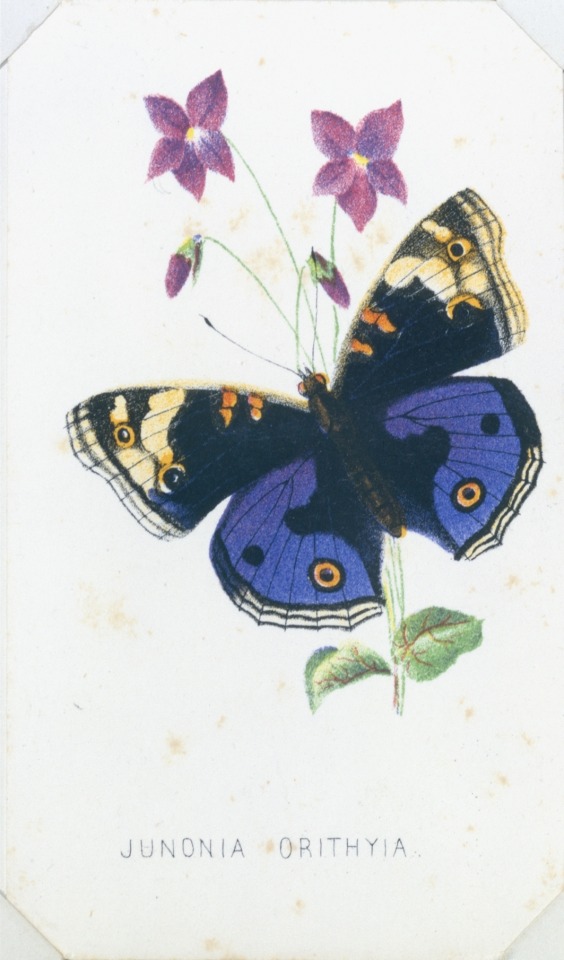
Junonia Orithyia from The Butterflies and Moths of America Part 1, Louis Prang & Co., 1860
Lithograph 4 ⅛ x 2 ⅜ in. (10.4 x 6.1 cm)
40 notes
·
View notes
Text
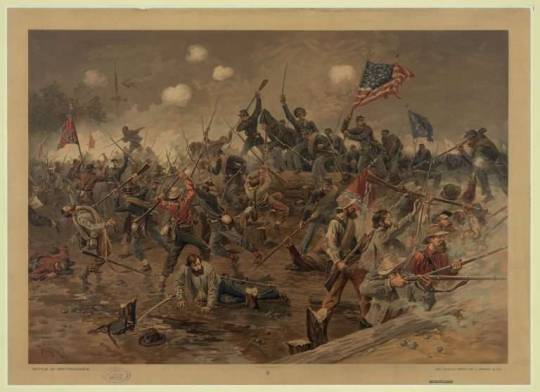
Crowd Scenes . 04 November 2024 . Battle of Spotsylvania Court House . Thure de Thulstrup 1887
Credit: Library of Congress Prints & Photographs Division Original Author: Thure de Thulstrup, artist; L. Prang & Co., publisher Created: 1887 Medium: Chromolithograph Publisher: Library of Congress Prints & Photographs Division
An 1887 chromolithograph by well-known contemporary illustrator Thure de Thulstrup depicts a bayonet charge by Union forces during the Battle of Spotsylvania Court House. That bloody battle took place in Spotsylvania County, Virginia, over the course of nearly two weeks in May 1864, and resulted in more than 18,000 dead, wounded, captured, or missing Union soldiers, and more than 12,000 casualties on the Confederate side. During the fighting, a young West Point–educated Union colonel named Emory Upton concluded that attacking the Confederates' well-constructed earth-and-log works required a new mode of attack. Rather than advancing in long lines of infantry that halted in the open in order to exchange fire with a well-protected enemy behind earthworks, Upton argued for storming columns that never stopped to open fire, but instead advanced right up to the earthworks, engaging the enemy with the bayonet. He tested his new tactics as part of an all-out attack on the evening of May 10; its initial success impressed the Union commander Ulysses S. Grant, who duplicated the maneuver on a larger scale.
Thulstrip was a Swedish-born artist and magazine illustrator who specialized in military scenes. The print was published by L. Prang and Company in Boston, Massachusetts, a firm known for producing scenes from the Civil War, and for pioneering the sale of Christmas cards in the United States. The owner of the company, Louis Prang—a native of Prussia who emigrated to Boston in 1850–-has been referred to as the "father of the American Christmas card."
21 notes
·
View notes
Text
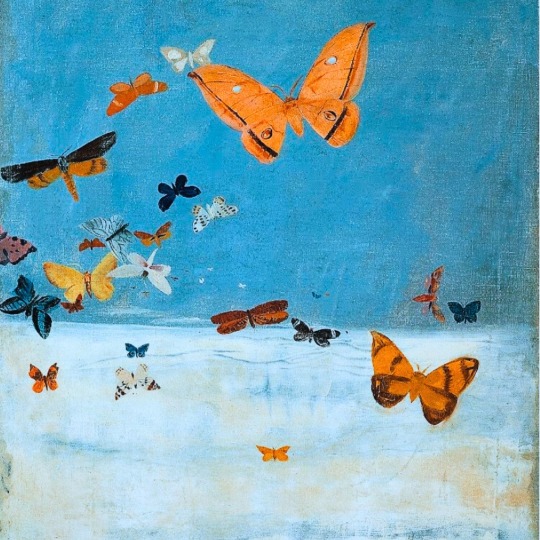
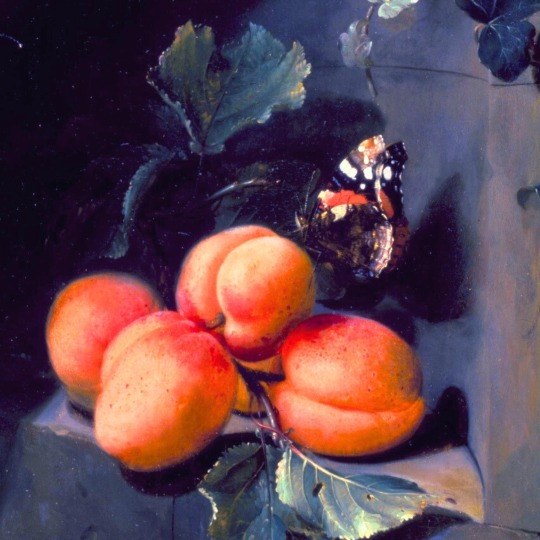
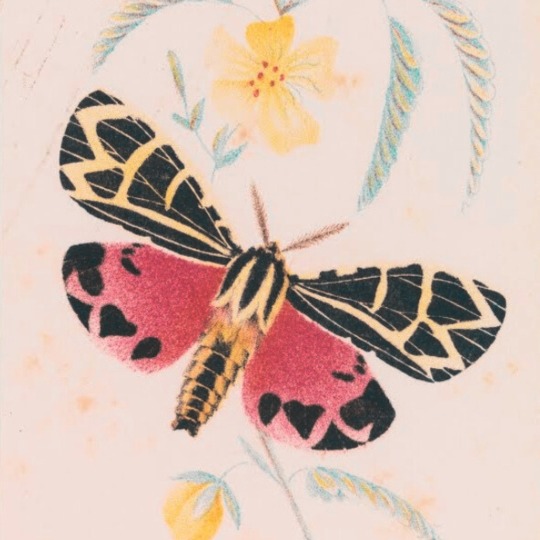
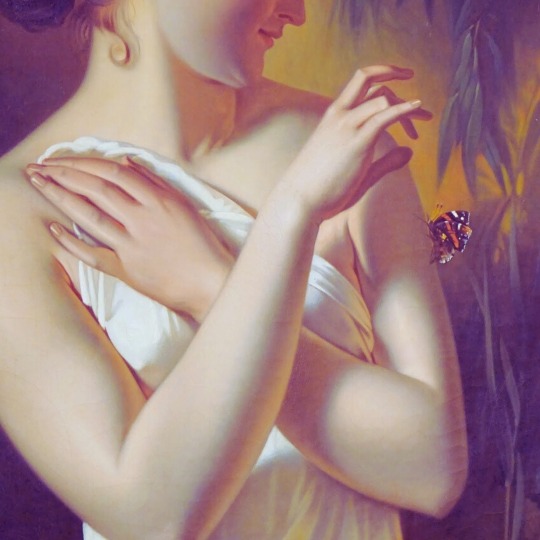
El simbolismo de la Naturaleza: Mariposa
El significado de la mariposa varía de cultura a cultura, como sucede con la mayoría de los símbolos.
Generalmente, la mariposa es símbolo de transformación e inmortalidad, transmite la belleza que surge después de la muerte tras la aparente corrupción del cuerpo. Esto es debido a la metamorfosis que sufre para pasar de oruga a mariposa. Por esto es que es símbolo de renacimiento y resurrección.
En el mundo griego, la mariposa simboliza el alma; en China y en Japón es alegría e inmortalidad. En el arte chino, el significado de la mariposa puede cambiar según los elementos que le rodeen. Por ejemplo, en combinación con el ciruelo simboliza larga vida; dos mariposas juntas significan un matrimonio feliz.
Contrario a los significados que ya se han dado, en el arte cristiano la mariposa es ligereza e inconsistencia. Como está se precipita en el fuego atraída por la brillante luz emanada, muere rápidamente consumida. Así mismo sucede a los seres humanos que eligen la perdición por sobre el camino hacia Dios. Por supuesto que no por ello deja de relacionarse con la resurrección, pues surge de la crisálida y asciende a los cielos como lo hizo Cristo.
www.tarotdeana.tumblr.com
Lee mitos griegos aquí.
Lee mitos coreanos aquí.
Lee mitos japoneses aquí.
Imágenes:
"Butterflies Flying above Clouds", por Migishi Kotaro, 1934
"Naturaleza muerta con duraznos y mariposas", por Jan Mortel, 1683
"Actia Virgo de Mariposas y Polillas de América Pt. 5", por Louis Prang & Co, 1862
"Chica con mariposa", por Gh. Panaiteanu Bardarsare, 1816/1900
#símbolos#simbolismo#simbologia#symbolism#symbols#mariposa#butterfly#tarot#cartomancia#tarot reading#ocultismo#tarot cards#ocultista#witchcraft#brujería#artes ocultas#cosas de brujas#nature#art
3 notes
·
View notes
Photo
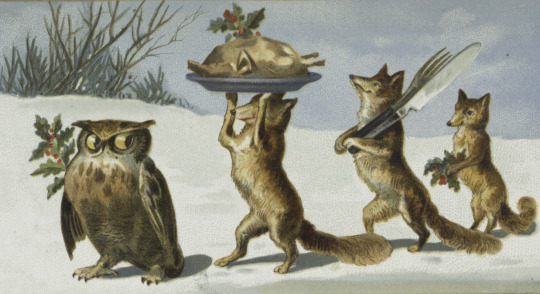
Prang Christmas Card, 1884 Chromolithograph (printer’s proof) Publisher: L. Prang & Co. (Boston, Mass.) The New York Public Library, Print Collection
#American illustration#Prang chromolithographs#Gilded Age#Gilded Age America#Christmas cards#Christmas#Louis Prang & Co.#L. Prang & Co.#December#holidays#American art#vintage Americana#1880s#prints and printmakers#American prints#chromos#Prang chromos#Americana#chromolithographs#19th century#animals in art#animals in human situations#snow#winter#owls#fox#foxes#mistletoe#Christmas dinner#silverware
37 notes
·
View notes
Photo










1) Junonia Orithyia
2) Arctia Virgo
3) Papilio Erithonius
4) The Dark Veinlet
5) The Yellow Swallow Tail
6) The Black Swallow Tail
7) The Sulphur Peacock Moth
8) The Painted Lady
9) The Senitorial Dryocampa
10) Callithea Sapphira
Cards from the series ‘The Butterflies and Moths of America’ (1860) by Louis Prang & Co. (Boston, Massachusetts).
Images and text information courtesy The Met.
231 notes
·
View notes
Text

No. 307 (1887) - Louis Kinney Harlow
#Wonder Rooms#Public Domain#Cabinet of Curiosities#19th Century#Louis Kinney Harlow#Prang & Co#Landscape Painting#Landscape Print#Landscape#Nature in Art#Countryside#Chromolithograph
35 notes
·
View notes
Photo

Prang & Co.’s Holiday Publications (1896). Louis. J. Rhead (American, 1858-1926). Poster.
L. Prang & Company was arguably the most influential and prolific publisher of American chromolithographs in the 19th century. What began as a firm specializing in album prints for collectors soon turned into one which produced not only full-color copies of famous paintings and popular war maps, but also an in-house magazine, Prang's Chromo: A Journal of Popular Art. For the holidays, the company always issued greeting cards, which were certainly among the offerings promoted in this poster. This is possibly the last advertisement made for L. Prang & Co., as it was bought out the following year.
39 notes
·
View notes
Text
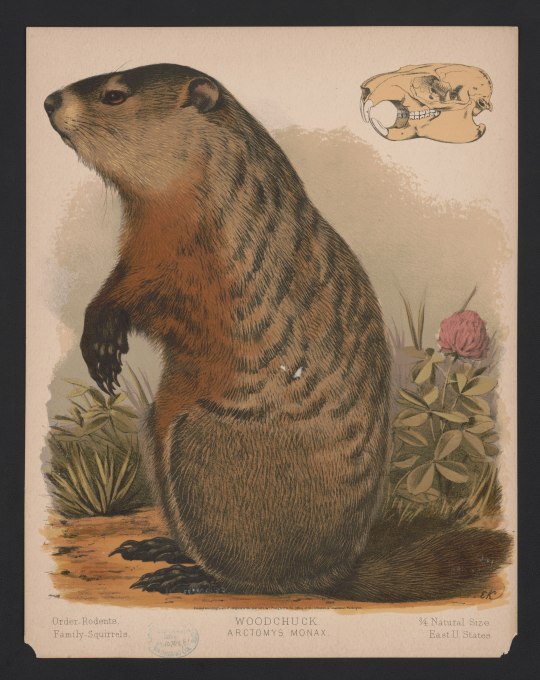
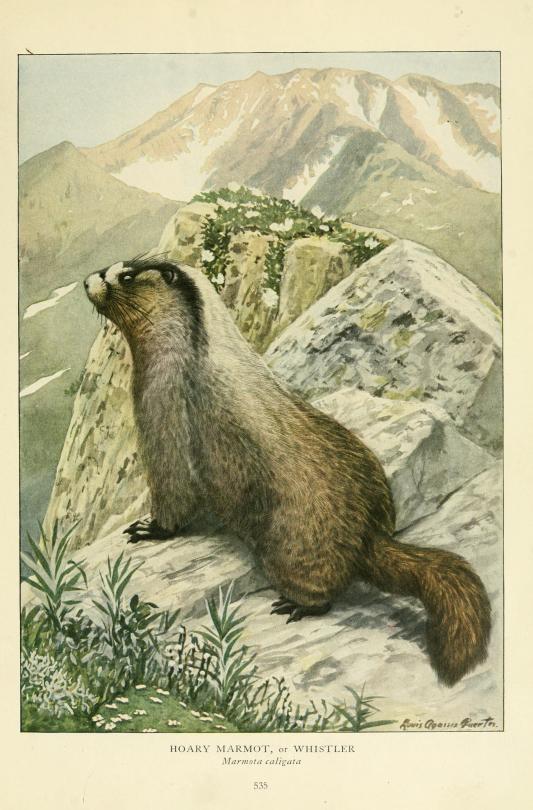
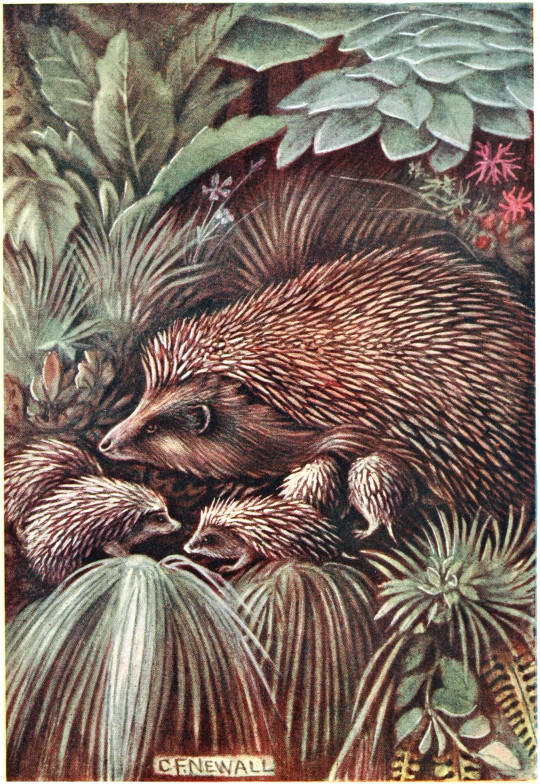
Today is #GroundhogDay (US), #MarmotDay (Alaska), and #HedgehogDay (Europe), so here is one of each!
1 Groundhog (Marmota monax)
Woodchuck - Arctomys monax* E.K. / L. Prang & Co., 1874 1 print : color lithograph ; sheet 35 x 27.3 cm. Library of Congress *same species; alternate common name and older scientific name
2 Hoary Marmot (Marmota caligata)
HOARY MARMOT, or WHISTLER / Marmota caligata p. 535 in Wild animals of North America, intimate studies of big and little creatures of the mammal kingdom by Edward William Nelson, 1918; illustration by Louis Agassiz Fuertes Biodiversity Heritage Library
3 European hedgehog (Erinaceus europaeus)
Hedgehog and Young Plate I in British land mammals and their habits by Alexander Nicol Simpson, 1911; illustration by C. F. Newall Internet Archive
#mammals#groundhog#woodchuck#marmot#hedgehog#illustration#book illustration#print#lithograph#19th century#20th century#Library of Congress#Biodiversity Heritage Library#Internet Archive#Groundhog Day#Marmot Day#Hedgehog Day#American art#British art#animals in art
54 notes
·
View notes
Text

Floral, François Rivoire, (French, 1842-1919)
Published by Louis Prang & Co.
#Floral#Art#Artedit#François Rivoire#French artist#Still life#Flowers#Louis prang and company#Chromolithograph
809 notes
·
View notes
Photo

Gladiolus, Ellen T. Fisher, published by Louis Prang & Co.
463 notes
·
View notes
Photo

The Painted Lady from The Butterflies and Moths of America Part 2, Louis Prang & Co., 1862
Lithograph 4 ⅛ x 2 ⅜ in. (10.4 x 6.1 cm) The Metropolitan Museum of Art, New York City, NY, USA
39 notes
·
View notes
Photo
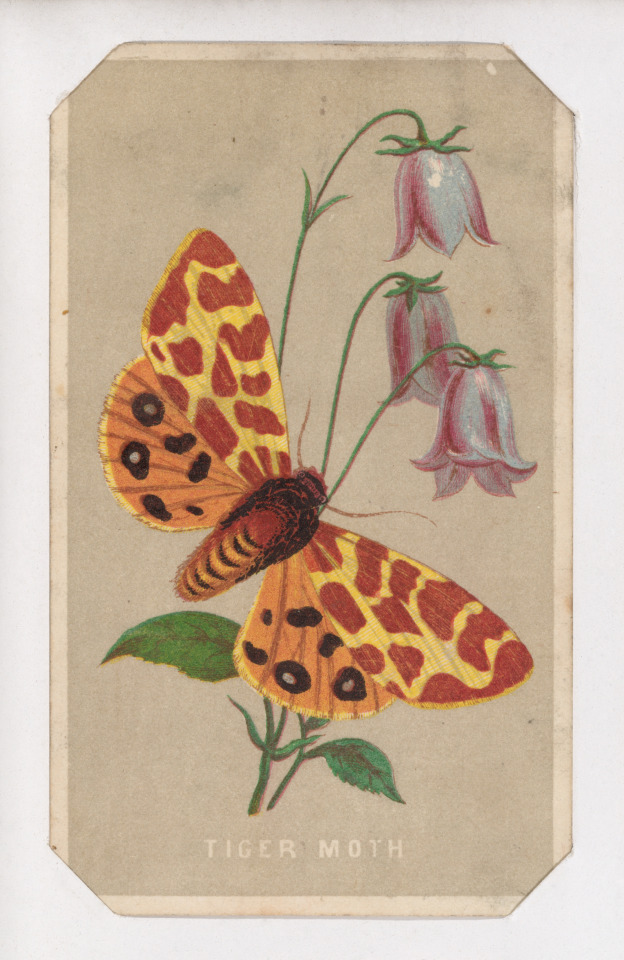
Tiger Moth from the Butterflies and Moths of America series, Louis Prang & Co, USA, 1862–69
Met Museum New York
Provenance: donated by Jefferson R. Burdick
Sheet: 4 in. × 2 1/2 in. (10.2 × 6.4 cm)
#tiger moth#19th century#lithograph#louis prang#jefferson r. burdick#museum#public domain#global art history#print
28 notes
·
View notes
Photo

Abraham Lincoln, Louis Prang & Co. Publishers, 1865, Harvard Art Museums: Prints
Harvard Art Museums/Fogg Museum, Gift of Belinda L. Randall from the collection of John Witt Randall
https://www.harvardartmuseums.org/collections/object/250082
3 notes
·
View notes
Photo

Merry... Christmas? In the late 19th century (still the early days for Christmas cards) many cards actually didn’t feature traditional Christmas imagery. This seaside themed card was made by the Louis Prang Co. in 1881.
#ChristmasCardDay#Christmas cards#vintage christmas#vintage christmas card#louis prang#victorian christmas#Christmas Card Day
81 notes
·
View notes
Photo
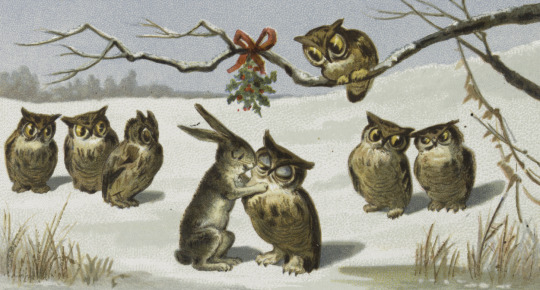
Prang Christmas Card, 1884 Chromolithograph (printer’s proof) Publisher: L. Prang & Co. (Boston, Mass.) The New York Public Library, Print Collection
#American illustration#Prang chromolithographs#Louis Prang & Co.#L. Prang & Co.#December#Christmas cards#Christmas#holidays#American art#vintage Americana#1880s#prints and printmakers#American prints#chromos#Prang chromos#Americana#chromolithographs#animals in art#animals in human situations#snow#winter#bunnies#bunny#rabbits#owls#birds#mistletoe#under the mistletoe#Gilded Age America#1880s America
29 notes
·
View notes
Photo






1) Snowdrop
2) White Violet
3) Strawberry
4) Moss and Gold Thread
5) Houstonia
6) Checker Berry
Cards from the Plant with Root series (1862-1869) by Louis Prang & Co.
Images and text information courtesy The Met.
249 notes
·
View notes